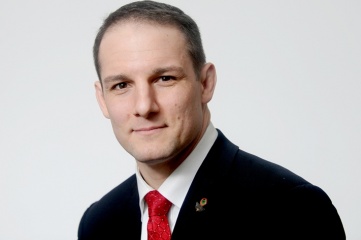HOST CITY: Which areas of preparation will require the greatest focus and dedication in the final two months before the Games?
David Grevemberg: The final areas are security and transport. You want people to have an absolutely safe time; you want things to be secure and people to really be able to trust that. It’s the same with transport: you want reliability, accessibility and making sure people are connected and able to get where they need to.
There are so many great learnings from London 2012, like good contract management when it comes to security in particular. What we’ve done is to diversify in terms of private contracting and stewarding: we have put together several lots on a site-specific basis. This requires good contract management but gives us better resilience.
HOST CITY: What impact do you think hosting the Games will have on the perceptions of Glasgow?
David Grevemberg: Glasgow has seen a reputation and recognition enhancement over the last 10 years of pursuing the Games.
It has garnered more recognition in terms of tourism, entertainment and sport, because of the number of events that are being awarded to Glasgow. Great examples beyond 2014 are the World Gymnastics Championships and the IPC Swimming World Championships. All these are testament to Glasgow being recognised as a place where great sport lives.
This is a huge confidence boost. We are raising the bar; we win together and we deliver – that’s going to make the history that Glasgow wants.
HOST CITY: What do you think Glasgow 2014 will contribute to the Commonwealth itself?
David Grevemberg: We’ve asked people what the Commonwealth means to them and they’ve said that the leadership of the Commonwealth is something that is admirable and inspiring: people like Her Majesty, Ghandi and Mandela.
We’ve also been incredibly provocative in challenging the Commonwealth, understanding the good the bad and the ugly: the tremendous industrial renaissance, but also some of the more uncomfortable connections that we have, such as empire, colonialism and slavery.
This has been a great occasion for a refreshed conversation about the modern Commonwealth. These values of peace, prosperity, democracy, humanity, equality and destiny are all at the heart of the Commonwealth secretariat.
Our focus is about looking at the citizens of the Commonwealth and truly empowering young people in a way that has not been done before. Whether that is offering the opportunity for young children to create our mascot or our tartan, or allowing 16-year olds to become volunteers – that has been seldom done at an event of this level.
What do you think the future holds for the Commonwealth Games?
David Grevemberg: There are very different markets right now in terms of hosting the events. You have emerging markets and regenerative markets, and some are a bit of a combination. Both have different opportunities and challenges, and it’s making sure that fits right for your event and your rights, as a rights owner.
One of the biggest challenges is to continue to make sure that the Games represent quality, quantity and universality. As the Commonwealth Games Federation moves forwards and future hosts come down, it’s about really making sure that the Games can manage all of that and perpetuate itself further by ensuring that it is continually relevant.
Do you have any plans or hopes for your own next moves after the Games?
David Grevemberg: My main focus right now is to deliver a fantastic Games. I have enjoyed the opportunity to deliver on ambition, particularly at a very anxious time in the world – to be part of something that is so ambitious and so positive.
I’ve learned quite a lot that’s going to really benefit me moving forward, in whatever roles I take on next, because it’s really given me a sense of what is possible when you get all the plans to align, in terms of the private, public and third sector.
When you look at sporting events not only as multinational events but also “multi-rational” events, with multiple rationales for why you are doing this, you are not just having an event that goes from city to city and becomes very nationalistic.
Beyond all that, we are a force for social, cultural, environmental and economic impact, from a local to a global level. All those things play into a broader agenda, which is where I think the world of sport is heading.
For the full interview with David Grevemberg, please read the current issue of HOST CITY magazine


